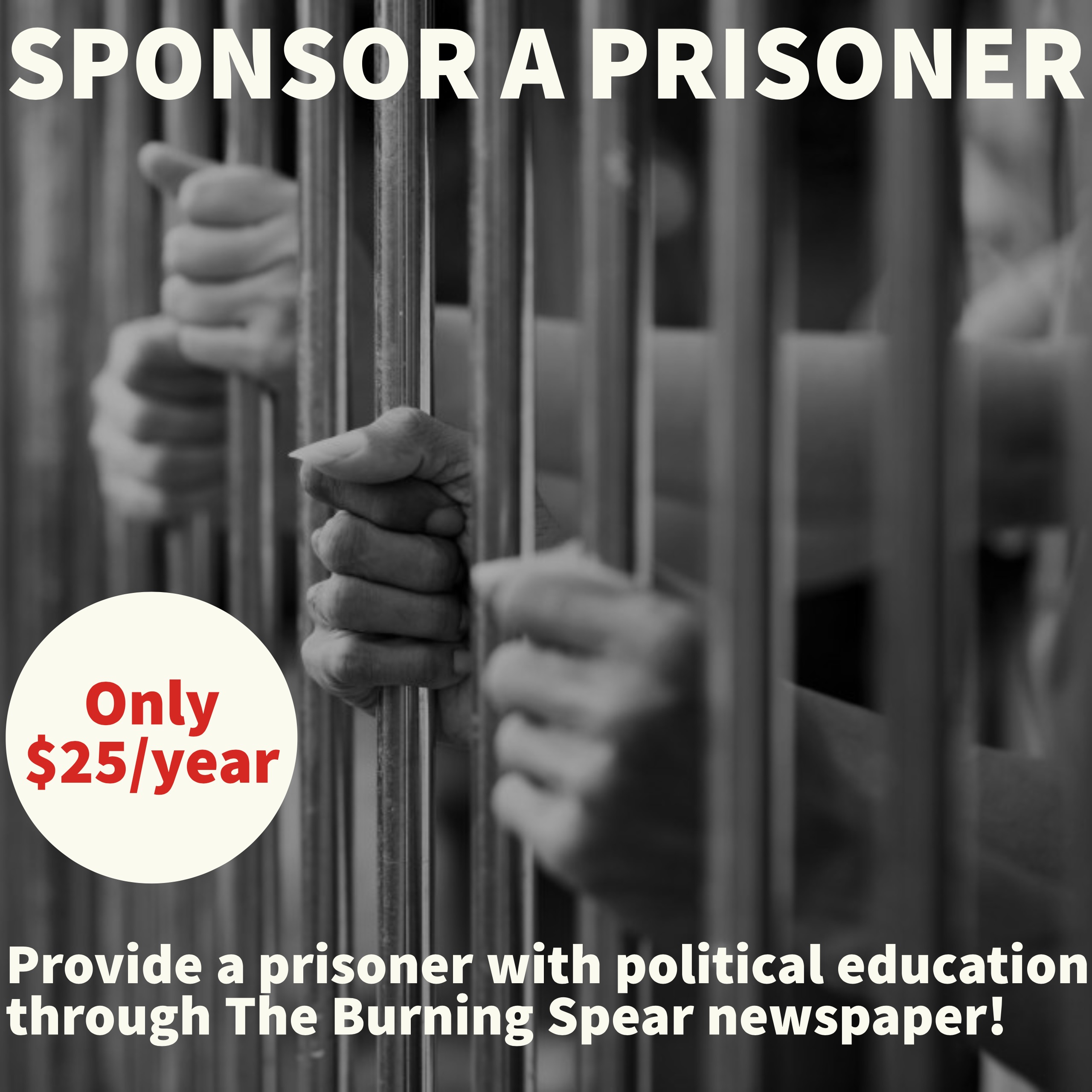Venezuela For Trinis
Remember when Venezuela had a program that would give poor people oil subsidies.... in the United States.... Yeah neither me. You probably never heard about it. This article was written to give Trinis a clearer picture on what is happening on our brother island, as the mainstream media is not telling us the truth.
In recent years Trinidad has seen an influx of Venezuelan immigrants. Trinidad and Tobago is a country that has long been recognized for its rich cultural diversity, and has welcomed immigrants from all over the world with open arms. However, in recent years, there has been an increase in the number of Venezuelan migrants who are seeking refuge in Trinidad and Tobago due to the economic and political crisis in their home country. Despite this, many Trinidadians remain unsympathetic to their plight.
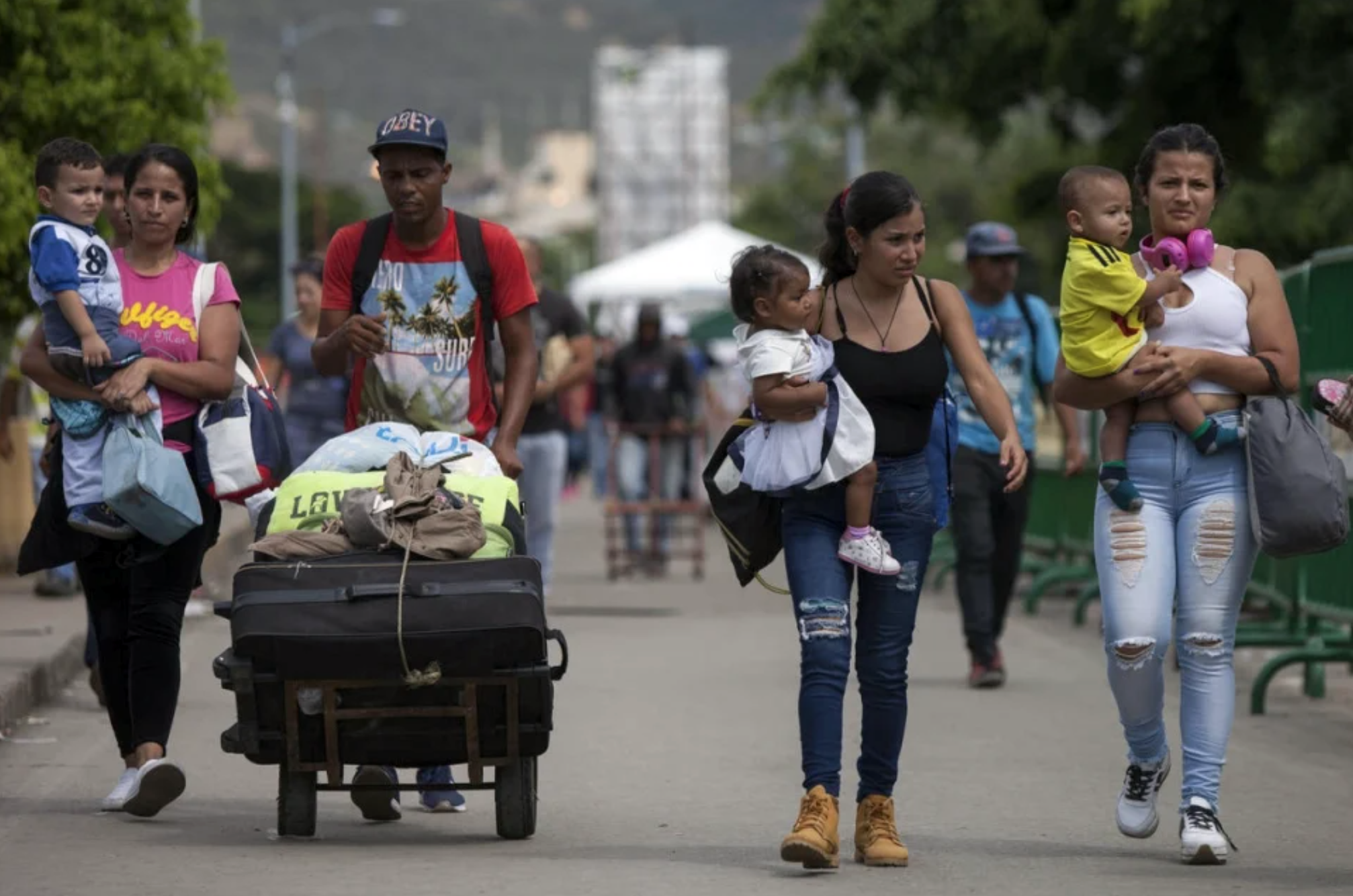
The crisis in Venezuela has resulted in a mass exodus of people seeking refuge in neighboring countries, including Trinidad and Tobago. According to the United Nations, more than 6.1 million Venezuelans have left their country since 2014. Many of these migrants are seeking basic necessities such as food, water, and medical care, which are in short supply in Venezuela. Others are fleeing political persecution and violence.
While some Trinidadians have welcomed these migrants, others have been less accepting, with some blaming them for the country's economic problems. It is important to recognize that the arrival of Venezuelan migrants in Trinidad and Tobago is not the cause of the country's economic problems. Blaming Venezuelan migrants for the country's economic problems is both unfair and inaccurate.
Many Trinidadians have friends and family members who are of Venezuelan descent. It is important to remember that these migrants are not just statistics, but real people who are seeking a better life for themselves and their families.
Racism in Venezuela

For 400 years, Venezuela was run by an elite majority of people who call themselves Spaniards. A group of lighter skinned Venezuelans. They do not even consider themselves Venezuelans.
Just like there is racisim in Trinidad in Venezuela it is much worse. So bad that both sides are exchanging bullets with each other.In Trinidad we are divided by Blacks and Indians, in Venezuela they are no different from us. They are divided by skin color also. Blacks and Whites. (Spaniards)
Commander Hugo Chavez
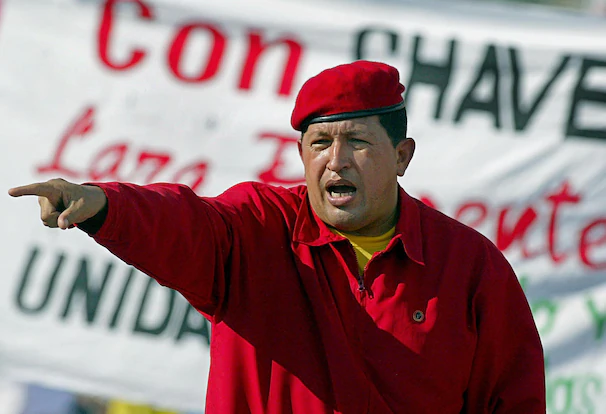
Hugo Chavez was a populist leader and champion of the poor. He was the President of Venezuela from 1999 to 2013
He was an economic and political supporter of Fidel Castro and a sharp-tongued critic of George W. Bush and U.S. policies. (He once called Bush "the devil" in a speech at the United Nations, saying the podium still smelled of sulfur from Bush's speech the previous day.)
Young Chávez escaped a life of poverty thanks to his skill as a baseball player. Baseball is the leading sport in Venezuela. From there Chávez joined the army and quickly rose through the ranks to become head of an elite paratrooper unit. An engaging speaker and charismatic personality, he was elected to the presidency as a leftist reformer and modern-day Simón Bolívar. (His reforms were called the "Bolivarian Revolution.")
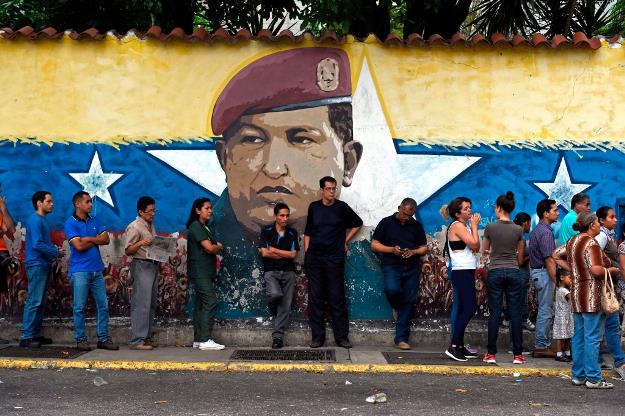
While in the army Chávez was troubled by the corruption he saw among high-ranking military officers. Actually, the regime in power at the time, headed by Carlos Andrés Peérez (1922–), was notorious for widespread bribery and payoffs.
Deciding to take a stand, Chávez organized a group of like-minded soldiers and secretly formed an anticorruption organization called the Bolivarian Revolutionary Movement. In 1992, Chávez and his band of over twelve thousand attempted to overthrow the Pérez government in a bloody coup that cost hundreds of lives. Although the coup was unsuccessful and Chávez ended up going to prison for the next two years, he became a national hero thanks to the media. In televised broadcasts he came across as a passionate speaker determined to make a change.
When Chávez was released from prison two years later, a new president was at the helm, but the plight of Venezuelans was no better. Prices of goods and unemployment were high, 80 percent of the population was living in poverty, the foreign debt was staggering, and corruption among government officials continued unchecked. Chávez decided to make a bid for the presidency and formed the Polo Patriotico (Patriotic Pole), which was composed of fourteen small political parties representing a wide variety of views. Disillusioned by the current administration, and tired of having political power in the hands of the upper classes, millions of poor Venezuelans rallied in support of Chávez, who they called El Comandanté (The Commander).
On December 6, 1998, Chávez was elected president by 56 percent of the vote, becoming the youngest elected president in Venezuelan history. On the night of his win, El Comandanté addressed the throngs of people in the streets, and according to U.S. News … World Report, he shouted, "You are the future owners of Venezuela." He went on to tell reporters, "People voted for a profound transformation, and they will have one." The transformation began immediately as Chaévez set about overhauling the entire government structure of Venezuela.
He formed a constitutional assembly that drastically reduced the powers of Congress; the assembly also reviewed the judicial branch in an attempt to rid the courts of corrupt judges. In the biggest move, Chaévez and his assembly reworked the Venezuelan constitution; the new version was approved by 75 percent of voters on December 15, 1999. The changes enacted were broad in scope: The country's name was changed to the Bolivarian Republic of Venezuela; the term of office of the president was extended from five to six years; the Congress was replaced by a unicameral (single body) National Assembly; and the power of political parties was slashed. Social reforms were also added, including free university-level education.
The new constitution called for elections to be held in 2000. Chávez easily won the presidency with 60 percent of the vote; his supporters also won the majority of seats in the new unicameral assembly. As a result, Chaévez succeeded in concentrating power in his own hands—and he stretched that power to the limit. In 2001 he passed a set of forty-nine economic laws, including the Hydrocarbons Law, which brought control of the PDVSA under the direction of the Minister of Energy, who, of course, was part of Chaévez's cabinet. The most dramatic law was a land reform program called the Ley de Tierras (Land Law). At the time nearly 70 percent of Venezuela's farmable land was owned by less than 3 percent of the population. In addition, according to national statistics, only 4 percent of useable land was being farmed. Under the new law, land that was not being used would be given to poor farmers.
Wealthy landowners and middle-class business owners were outraged, fearing that privately held property would be confiscated by the government. Chávez further angered wealthy Venezuelans in two more ways: He attempted to consolidate all existing labor unions into one state-controlled Bolivarian Labor Force; and he was using oil revenues to implement his many social programs. Such programs included literacy campaigns in the poorest regions of the country, new health clinics, and paved roads in rural areas. The most high-profile programs were the Chavista Missions, outreach programs directed at groups of citizens who had historically been ignored. For example, a public health mission called Barrio Adentro employed over ten thousand doctors dedicated to serving in areas of Venezuela where no doctors were available before.
Chávez kept in contact with his adoring public thorough his weekly radio broadcast, Alo President, a call-in program where he answered questions about public policy and helped average citizens with their problems. On the other hand, the press became increasingly wary of the new president when, in an attempt to gain overall control, he tried to pass laws that would censor the media. The opposition accused Chávez of going too far; they also claimed he was a kind of diablo, or devil, who was undermining the democratic state of Venezuela. The media to note was controlled by the wealthy landowners who he had previously pissed off. This is where the labels of dictator arose.
He survived a kidnapping and coup attempt in April of 2002, withstood a recall referendum in August of 2004, and battled cancer through various treatments and surgeries in his last few years. He was re-elected to another six-year term in October of 2012, but finally succumbed to cancer a few months later.
Sanctions

The United States first imposed sanctions on Venezuela in 2006. The sanctions were targeted at individuals and entities that the U.S. government accused of human rights abuses and drug trafficking. In 2014, the U.S. imposed additional sanctions on Venezuela in response to the country's economic and political crisis. The sanctions were designed to pressure the Venezuelan government to change its policies and improve the situation for the Venezuelan people.
The sanctions have been tightened several times since 2014. In 2019, the U.S. imposed sanctions on the Venezuelan oil industry in an effort to force the government of Nicolás Maduro from power. The sanctions have had a significant impact on the Venezuelan economy, and they have been blamed for exacerbating the country's humanitarian crisis.
Venezuelan Shantytowns
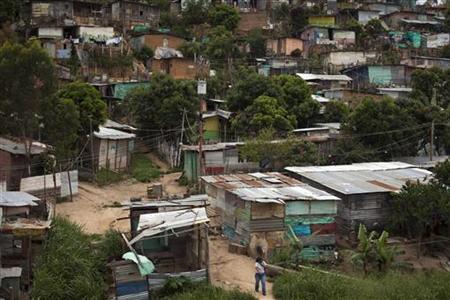
In 1976 Caracas was surrounded by densely populated shantytowns. The Houses were made out of cardboard, wood and galvanize. In a country drowning in oil. When Hugo Chavez came in he transformed the slums into apartments.
La Vega and Los Manolos, the popular names for these urban developments. All these projects coincided with the nationalization of the oil industry and the enormous influx of money coming from the global oil crisis in 1973.
2002 Coup Attempt
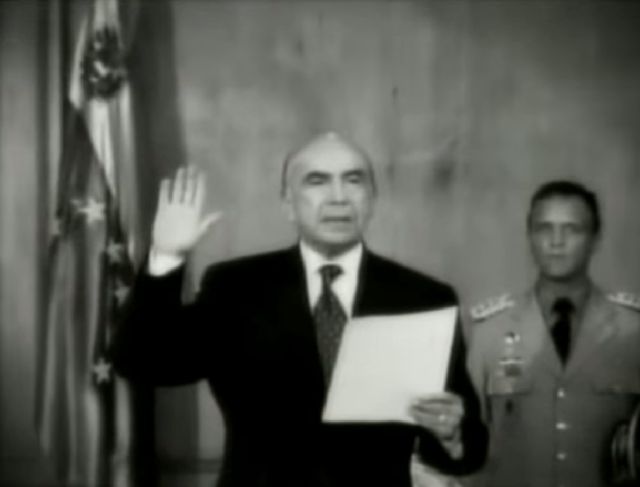
Pedro Carmona Estanga, former president of Venezuela’s main chamber of commerce, Fedecámaras, took power as the President of Venezuela during the 47-hour coup that began April 11th, 2002, in which Hugo Chávez was taken prisoner by military officials. During this time, Carmona's interim government dissolved the National Assembly, the Supreme Court, and annulled the Venezuelan constitution.
Keystone XL Pipeline
The first question you may ask yourself is wtf does the keystone pipeline have to do with Venezuela.
The Rape of Venezuela's Riches
CITGO
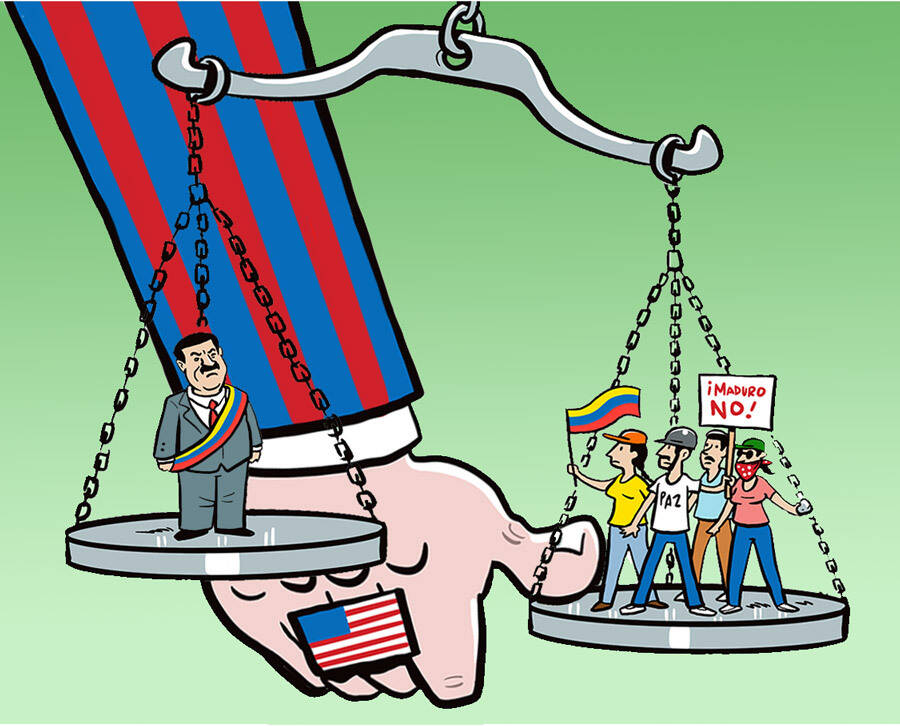
Is Maduro a Dictator?
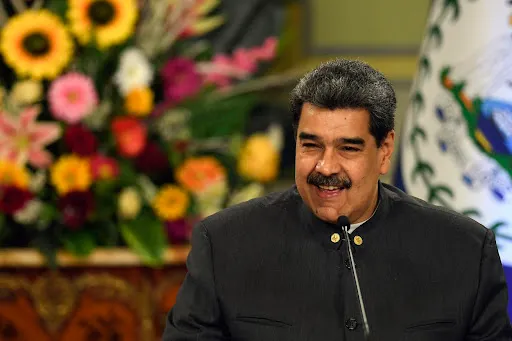
I get hightly annoyed when in 2023 I hear people still calling President maduro a dictator. Nicholas Maduro came from humble beginnings.
Capitalist vs Communist
Before an invasion is launched they have to install a narrative within the people. The minds of the people have to be invaded.
If you haven't gotten it by now, this is all about Venezuela's oil.





